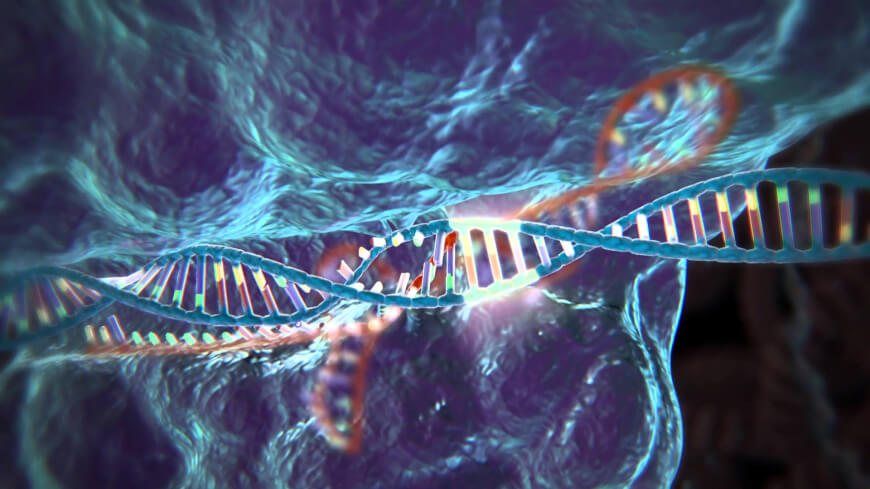CRISPR, an acronym for Clustered Regularly Interspaced Short Palindromic Repeats, has become a revolutionary tool in the realm of genetics. It allows scientists to edit genes with incredible precision, offering the potential to treat and even eradicate a vast array of diseases. But with such immense power comes a multitude of ethical and scientific considerations. This article delves into the world of CRISPR, exploring its potential to reshape medicine while examining the ethical dilemmas it presents.
The Promise of CRISPR: A New Era in Medicine
Imagine a world where cystic fibrosis, sickle cell anemia, and even some cancers are a distant memory. This is the future CRISPR promises. By editing faulty genes, scientists believe they can correct the underlying cause of many diseases, offering a permanent cure instead of just managing symptoms.
Consider the staggering statistics: cystic fibrosis affects over 70,000 people worldwide, while sickle cell disease impacts millions. CRISPR trials are underway for both conditions, offering a glimmer of hope for patients and their families.
The applications extend far beyond single-gene diseases. CRISPR holds promise for tackling complex conditions with a genetic component, such as heart disease and Alzheimer’s. Additionally, it can be used to engineer immunity to viruses like HIV, potentially revolutionizing public health.

Beyond Disease: The Broader Applications of CRISPR
The potential of CRISPR extends beyond the realm of medicine. It can be used in agriculture to develop crops resistant to pests and diseases, leading to increased food security. It can also be used to create biofuels and other sustainable products.
The Ethical Tightrope: Navigating the Challenges of Gene Editing
The immense power of CRISPR is accompanied by a complex web of ethical considerations. One major concern is the potential for unintended consequences. Editing genes can have unforeseen effects, potentially leading to new and unforeseen health problems.
The Germline Editing Debate: Altering Our Future
A particularly contentious issue is germline editing, which modifies genes in sperm, eggs, or embryos. These changes would be passed on to future generations, raising concerns about creating “designer babies” with predetermined traits like intelligence or athletic ability.
Opponents argue that germline editing could lead to a slippery slope, creating a society obsessed with genetic perfection and exacerbating existing social inequalities. Additionally, the potential for unforeseen consequences is magnified when dealing with the human germline, impacting generations to come.
The Balancing Act: Regulation and Public Discourse
There is a global consensus on the need for responsible use of CRISPR. Many countries are developing regulations to ensure ethical research practices and prevent misuse. Public discourse is crucial in shaping the future of gene editing. Open discussions about the potential benefits and risks are essential for building trust and ensuring responsible development.
Diverse Perspectives: A Global Conversation
The ethical implications of CRISPR take on a different dimension when considering diverse cultural and religious perspectives. Some cultures place a high value on the sanctity of life and may view gene editing as tampering with the natural order.
Religious beliefs also come into play, with some faiths questioning the morality of altering the human blueprint. It’s crucial to have a global conversation that acknowledges these diverse viewpoints and fosters international collaboration on the ethical use of CRISPR.
The Scientific Hurdles: Challenges on the Road to Cures
Despite its immense potential, CRISPR is still a young technology with scientific hurdles to overcome. Delivering the gene-editing machinery precisely to the target cells remains a challenge. Additionally, ensuring the edited genes function correctly within the complex cellular environment is another obstacle.
The Road Ahead: Continuous Research and Collaboration
Extensive research is ongoing to address these challenges and refine CRISPR technology. Collaboration between scientists, ethicists, policymakers, and the public is essential for navigating this new frontier in genetics.
Conclusion: A Powerful Tool for Good, Used Wisely
CRISPR presents a powerful tool with the potential to revolutionize medicine and reshape our world. However, this power comes with immense responsibility. By carefully considering the ethical and scientific challenges, we can ensure that CRISPR is used for good, paving the way for a healthier future for all.